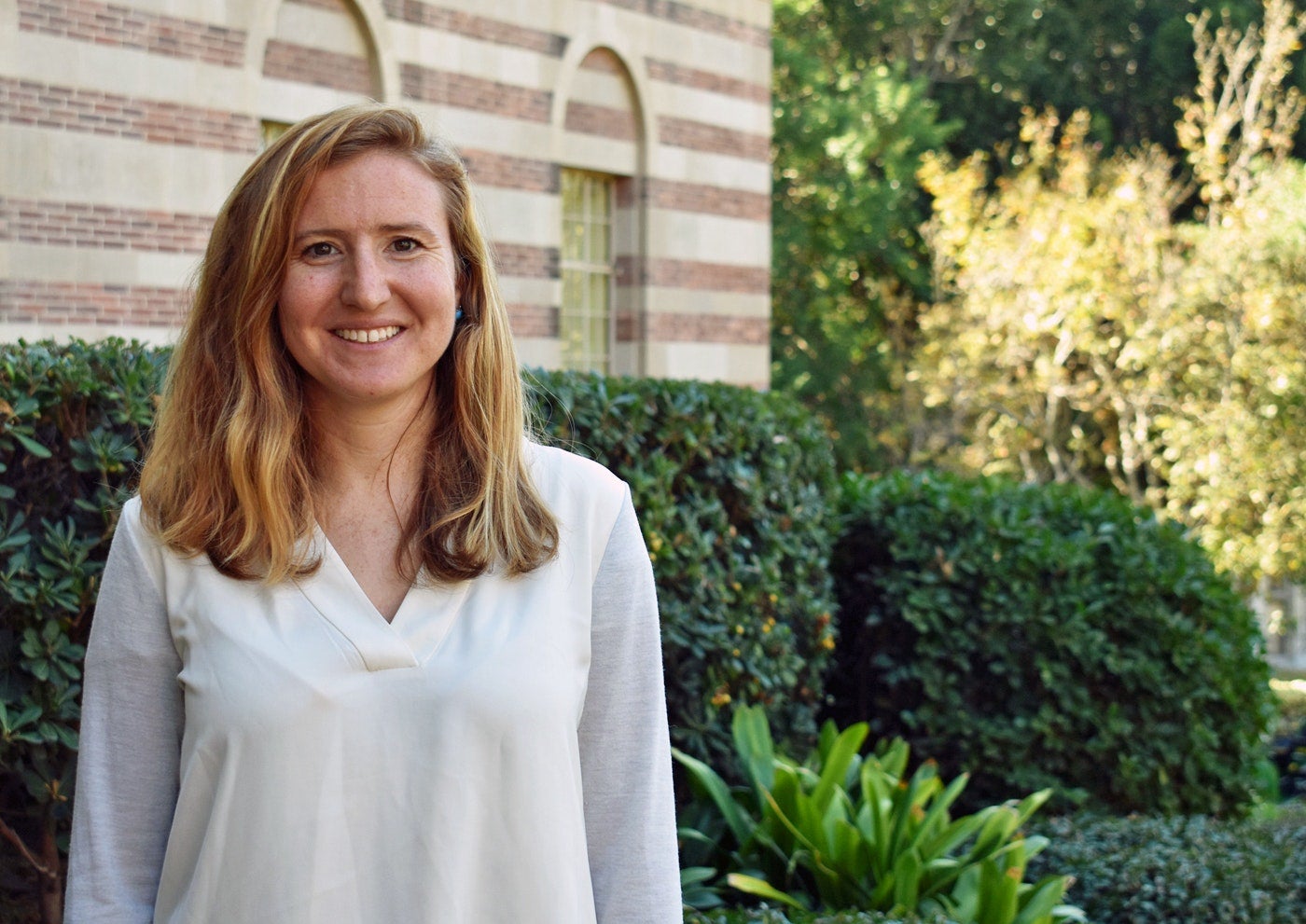Anna Markowitz, UCLA assistant professor of education, has published a blog post for the Brookings Institution on “The value of systemwide, high-quality data in early childhood education,” co-written with Daphna Bassok, associate professor of education and public policy at the University of Virginia.
Markowitz, who teaches in the division of Human Development & Psychology, has done extensive research on the impact of both poverty and policy on children’s early experiences and later development, with an emphasis on food insecurity and early care and education. The blog post describes the deep need for better data on early childhood education in order to create high-quality experiences for children. Bassok and Markowitz describe how their research-policy partnership with the Louisiana Department of Education has revealed how systemwide quality measurement can support quality improvement in schools.
“High-quality early learning experiences—those filled with stimulating and supportive interactions between children and caregivers—can have long-lasting impacts for children, families, and society,” writes Markowitz and Bassok. “Unfortunately, many families, particularly low-income families, struggle to find any affordable early childhood education (ECE) program, much less programs that offer engaging learning opportunities that are likely to foster long-term benefits. A challenge for families trying to find high-quality ECE and for policymakers trying to drive real improvement is that publicly funded ECE in the United States is offered through a complex hodgepodge of programs that includes federal Head Start, state preschool, and subsidized, private child care.
“These programs differ greatly with respect to their goals, funding levels, regulations, and, ultimately, the experiences they provide for young children. The absence of systemwide data makes it difficult to target resources wisely, and nearly impossible to assess whether large public investments in quality improvements are paying off.”
Markowitz and her co-author state that quality rating and improvement systems (QRIS)— early childhood accountability systems currently in place in 44 states—could provide a way to measure ECE quality, help inform parents making care decisions, and provide supports for improvement at scale, but do not because of the fact that most QRIS are voluntary for ECE programs and have so far had low participation rates. Louisiana’s QRIS, however, is mandatory, and tracks program quality systemwide—allowing the blog post to provide new evidence that ECE opportunities in Louisiana have improved over the past four years across schools, Head Starts, child care centers, and in classrooms serving both preschoolers and toddlers.
Markowitz and Bassok write that while Louisiana’s QRIS cannot address the major structural issues plaguing ECE—including long waitlists for childcare subsidies and the financial and emotional struggles of early educators—the state’s recent ECE reforms do, “… highlight the power of systemwide data collection and the promising role of QRIS. By taking on this work, state leaders can build a common vision for improvement, an avenue and framework for investments, and a way to track progress as programs and communities work toward access to high-quality ECE for all.”
Markowitz recently recorded a podcast, “Can Same-Race Teachers Boost Parental Engagement in Head Start?” for the Penn Graduate School of Education, based on her recent paper, “Teacher-Child Racial/Ethnic Match and Parental Engagement With Head Start,” co-written for the American Educational Research Association (AERA). To listen, visit this link.
To read, “The value of systemwide, high-quality data in early childhood education,” on Brookings.edu, visit this link.
